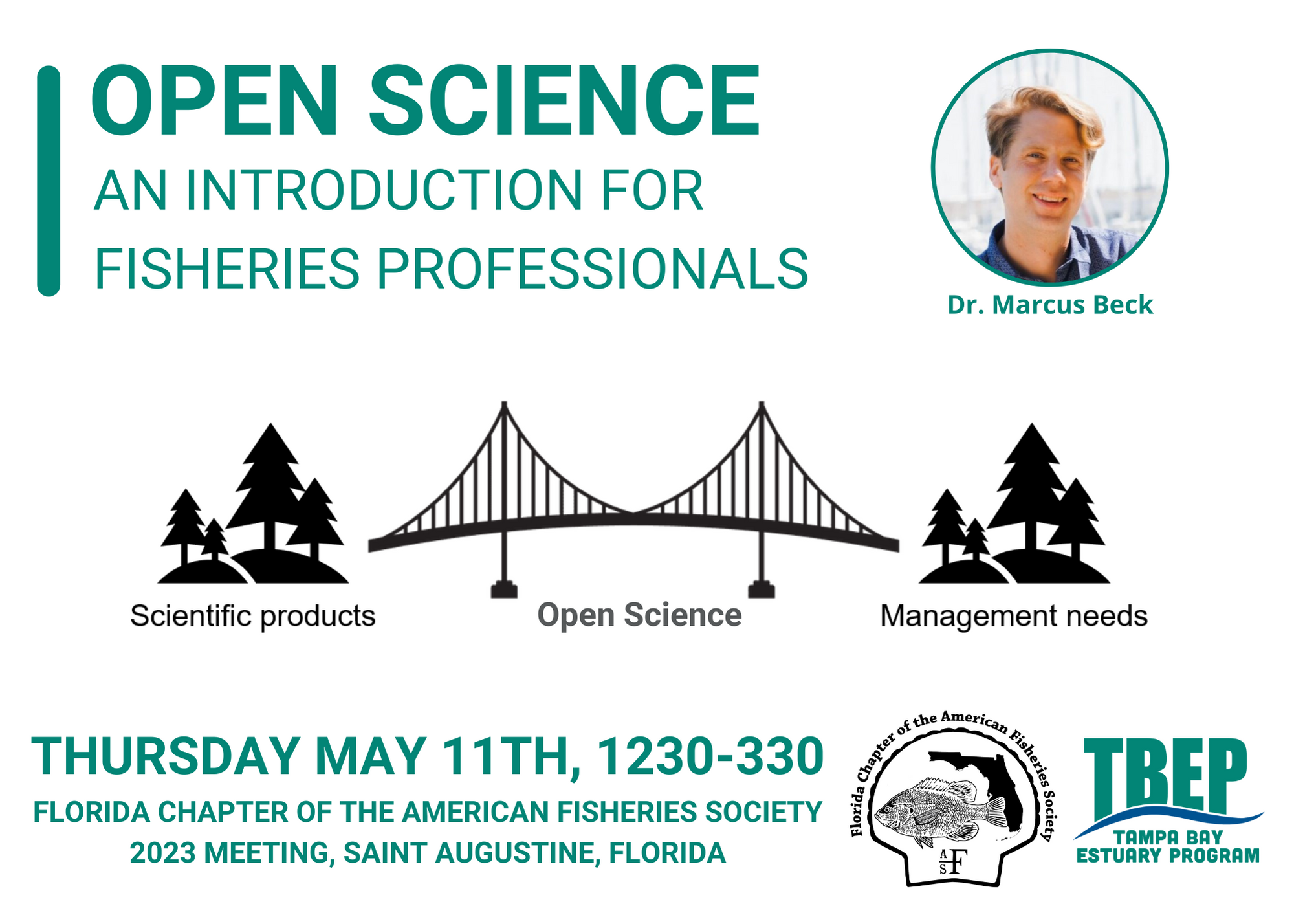Florida AFS 2023 Open Science Workshop
Course synopsis
Welcome to the 2023 Florida AFS open science workshop! Open science (OS) has been advocated as an effective approach to create reproducible, transparent, and actionable research products. However, widespread adoption among the research and management community has not occurred despite its perceived benefits. In the face of major environmental challenges, the collaborative framework provided by OS is needed now more than ever. This workshop will cover material introducing participants to core concepts of OS. The target audience includes anyone interested in applying OS in their own workflows as part of a larger research and resource management team.
By the end of this workshop, you should have a good understanding of fundamental concepts in open science and how they can be applied to help bridge the research-management divide. You will also have the skills to understand how collaborative open science tools can be used to increase efficiency and transparency, understand fundamental best practices for working with data to facilitate openness, and create reproducible Quarto documents.
Much of the content on this web page was adopted from the TBEP Data Management SOP.
Prepare
Please attend the workshop with a personal laptop and power supply. Make sure your laptop can access publicly available WiFi. You need to install software prior to the workshop, visit the setup page for full instructions. We will have limited capacity to help with installation issues the day of the workshop, so please come prepared. The setup instructions will guide you through the following.
- Install R: link
- Install RStudio: link
- Install Quarto: link
- GitHub create account: link
- Install Git (optional): link
We also assume some knowledge about R. Please visit this page for a crash course if you need to brush up on your R skills.
Agenda
- The basics of open science: 12:30 - 1:00
- Open science for collaboration: 1:00 - 2:00
- Open science for impactful products: 2:15pm - 3:30pm
Each module uses a set of common icons to orient you to specific tasks or experiences during this workshop. These include the following:
Exercise and discussion
Watch and learn
Description of a collaborative tool
Pros of a collaborative tool or solution to an open science challenge
Cons of a collaborative tool
Challenge to overcome for open science
Instructor
Dr. Marcus Beck is the Program Scientist for the Tampa Bay Estuary Program and is developing data analysis and visualization methods for Bay health indicators. He received his PhD in Conservation Biology from the University of Minnesota in 2013. Marcus has experience researching environmental indicators and developing open science products to support environmental decision-making. Marcus is also an open source software and dashboard developer to facilitate science application. CV, Google Scholar, GitHub
 This website is licensed under a Creative Commons Attribution 4.0 International License.
This website is licensed under a Creative Commons Attribution 4.0 International License.
This version of the website was built automatically with GitHub Actions on 2023-05-10.
